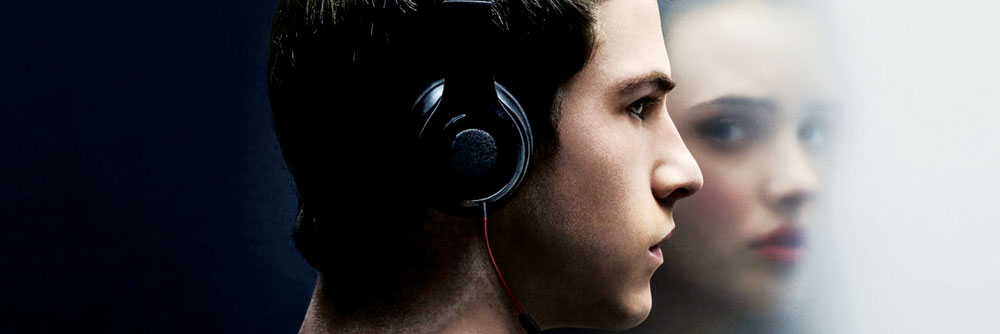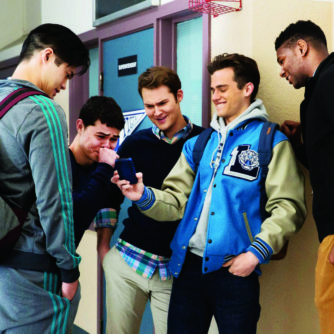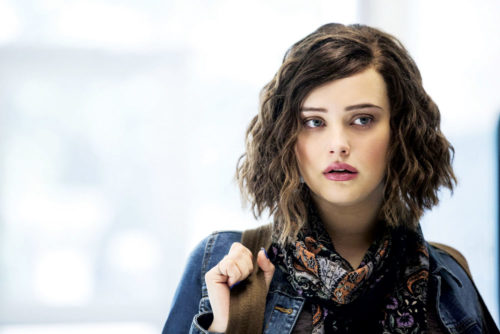
Each month the Indie Prof reviews films in theaters or on DVD or streaming services. Follow “Indie Prof” on Facebook for updates about film events and more reviews.
13 Reasons Why (Netflix)
The story of a high school student who commits suicide is not the kind of material usually targeted for mass consumption; the topic is mostly relegated to the darker edges of the indie world. But 13 Reasons Why is a self-described effort to reach mass audiences. Based on the 2007 young adult novel by Jay Asher, the show is a daring, explicit, well-produced, and polemical new series from Netflix that has become a hot-button discussion item amongst teens and parents alike. As the parent of a soon-to-be-high school girl, I am keenly aware of the debate here: some see it as required viewing, some see it as glamourizing teen suicide, some see it as distasteful for young audiences, some see it as sensationalistic, some see it as necessary to understanding high school life in the social media age, and still others see it as downright vile. I understand all perspectives, but my role here is to analyze the series on its merits. In that respect, this difficult show is a resounding success.
The premise: a high school sophomore commits suicide and leaves behind a series of cassette tapes detailing how she was bullied, cyberbullied, cast aside, and well, you have to watch for the rest. Suffice to say that she endured more than her share of high school drama, and some of it was absolutely venal. Every cassette side contains a different story, giving her narrated version of what each person did to her (one person/story per cassette side). Each is shocking, saddening, and horrific. A few even go beyond that.
The production values are first-rate: the direction is solid (six different directors collaborate on the 13 episodes); the writing is sharp and stinging (10 different writers are credited, including Asher and Pulitzer Prize-winning playwright Bryan Yorkey); the cinematography and editing are professional and solid; the music is particularly good; and the acting is outstanding. Of these aspects, the music and acting stand out: the mostly teen-aged cast is all very good, and while Katherine Langford as Hannah and Dylan Minette as Clay shine throughout, the remainder of the ensemble is excellent. The grown-ups are also very good, but Kate Walsh as Olivia Baker, Hannah’s grieving and feisty mother, is particularly stunning.
The music requires further investigation because it jumped off the screen from the first episode; it established a credible tone and announced itself (and by extension, the entire undertaking) as serious, knowledgeable, thoughtful, and meaningful. The relative newcomer Eskmo did the music for all episodes (his only other credit—the well-regarded and highly rated Billions on Showtime). It is the popular music on the soundtrack that really rises, however: some are old songs re-made by current stars and some are just the old songs used in context. For example, in the first episode, early action plays out to the sound of Joy Division’s Love Will Tear Us Apart. The title and lyrics are self-explanatory, but it goes deeper than that. Founded in the late ’70s, Joy Division became the founding influence on dark Alt bands such as The Smiths, The Cure, and Depeche Mode. The band lasted only a few years before lead singer Ian Curtis committed suicide in 1980. He had suffered from depression, a failed marriage, and epilepsy that caused him bouts of seizures and even some resultant derision because of the episodes. Unable to deal with it all, he killed himself. The inclusion of the song therefore lends an ethos to the series that is usually lacking in most depthless teen stories. This story has depth, history, and a desire to connect to audiences outside teens: their parents.
If I have one complaint about the series, it is with the writing—it is sometimes overwritten. Oftentimes it is too obviously older people writing dialogue for younger people/teens, thereby rendering it overly mature and intellectual. I wish the wonderful actors had been given more latitude to improvise. I think it would have provided more realism and less Juno-type perfect answers and logic in every situation. But I can forgive the series this one foible, since it is so affecting in every possible way.
The show is executive produced by Selena Gomez and her mother, Mandy Teefey. Gomez had the rights to the book for a while, and she was slated to star in the filmed adaptation. But she finally demurred, thinking her popularity would have overshadowed the material. In a New York Times interview, she described her decision: “I wanted it to be credible. If I’m a part of it, that’s going to cause a whole other conversation.” It was a wise choice and an admirable stance.
As a film reviewer, I can recommend this series on its merits. As a father, it was difficult, painful, upsetting, and even infuriating to watch. And I needed to watch. After screening the first episode, I decided to watch concurrently with my daughter. We had conversations about the issues as well as the series itself. I did this as a father and not a film professor, and I am glad I did. My daughter’s take was that “parents are making a bigger deal out of it than the kids.” Fair enough, but for me, it is better the high school I know than the high school I don’t know.
Season One is now available on Netflix.
You will like this if you enjoyed Stranger Things, Veronica Mars, and/or My So-Called Life.
Vincent Piturro, Ph.D., is an associate professor of Cinema Studies at Metropolitan State University of Denver. He can be reached at vpiturro@msudenver.com.



0 Comments